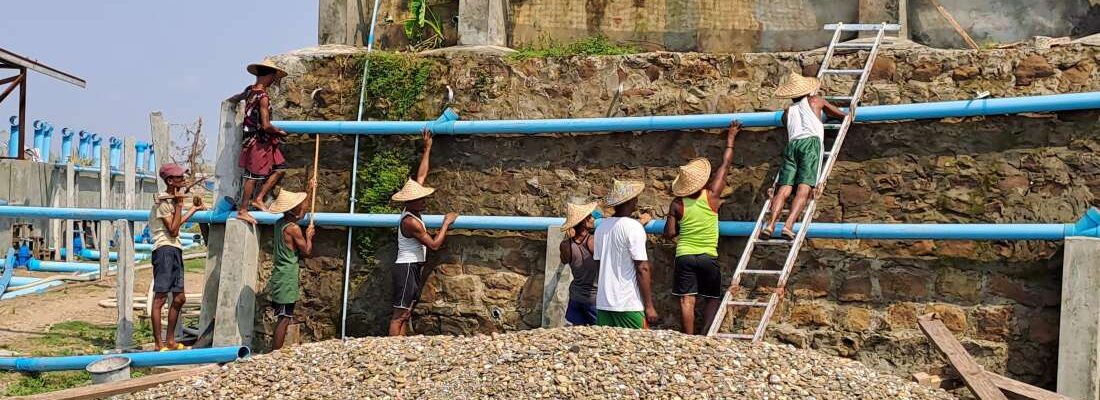An innovative cash support model helps communities rebuild
Myanmar | 2023 | CBPF
Myanmar, Rakhine. With markets and livelihoods destroyed after Cyclone Mocha, people urgently needed help with sanitation, clean water and ways to make a living.
Cyclone Mocha hit Myanmar’s Rakhine state on 14 May 2023. One of the strongest cyclones ever recorded, Mocha pummeled the coast with sustained winds of 250 km/h and gusts of up to 305 km/h.
The cyclone affected more than three million people in Myanmar and heavily damaged latrines, wells, and other water and sanitation infrastructure in displacement camps and sites across Rakhine.
A project funded by the Myanmar Humanitarian Fund supported local livelihoods by purchasing equipment and supplies, and hiring local tradespeople to restore water and sanitation infrastructure.
The cash came at a critical time. “After Mocha, we had very few job opportunities and no income coming in,” says a carpenter who worked on the construction. “With the money I earned, we were able to buy food and make some repairs to our home.”
These facilities are essential for people’s health and well-being. The MHF-funded programme used an innovative model to allocate cash and rebuild affected communities.
Rather than dictate which repairs happened where, the programme created local grant committees. These local committees were made up of affected people, who together decided how best to allocate the funding for the most critical infrastructure repairs in their community.
The committees managed local work teams that carried out the reconstruction and rehabilitation of latrines and shower stations. The INGO partner provided training and technical support to the committees during the construction process, as well as assisting with the procurement of equipment and supplies, and supporting financial management.
Directly engaging the community in allocating the funds fostered a stronger sense of local leadership and ownership over the entire process.
With everyone working together, construction finished ahead of schedule, quickly re-establishing access to safe WASH infrastructure. “We felt a great sense of unity in our community by working together to reconstruct the latrines after Cyclone Mocha,” explains a man who was part of the grant committee. “Almost all of our latrines were damaged or destroyed. Working with [the NGO] we were able to repair them.”
The committee model worked well. “We benefited from the experience of managing the construction process. We learned how to liaise with traders and suppliers. And we learned what it costs to build a latrine, so now we want to maintain them for the longer term.”
For more information on the Myanmar Humanitarian Fund.
OCHA – POOLED FUNDS DATA HUB – By Country (unocha.org)
